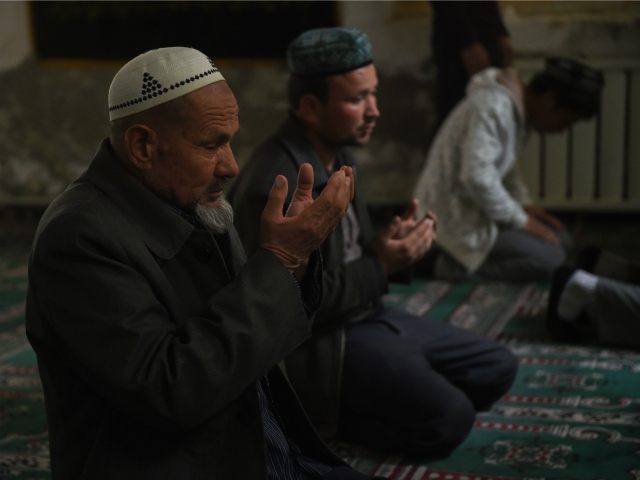China’s envoy to Turkey, Deng Li, on Thursday issued a very thinly-veiled threat against Turkish “commercial and economic” interests if the Turkish government does not mute its criticism of how China treats the Uighur Muslims of Xinjiang province.
Deng said during an interview with Reuters that Chinese companies are eager for investment opportunities in Turkey, but that could change if the administration of Turkish President Recep Tayyip Erdogan continues denouncing China’s actions against the Uighurs.
Turkish Foreign Minister Mevlut Cavusoglu delivered some of Turkey’s strongest official criticism to date at the U.N. Human Rights Council in Geneva this week. Pro-Erdogan media in Turkey has gone even further, accusing China of committing “genocide” against the Uighurs.
“There may be disagreements or misunderstandings between friends but we should solve them through dialogue. Criticizing your friend publicly everywhere is not a constructive approach,” Deng told the Turks via Reuters.
“If you choose a non-constructive path, it will negatively affect mutual trust and understanding and will be reflected in commercial and economic relations,” he warned.
“The most important issue between countries are mutual respect Would you stay friends if your friend criticized you publicly every day?” he asked.
Deng took some pains to imply the consequences for continued Turkish criticism would not be ordered from Beijing, which he risibly claimed is “strictly against” protectionist policies. Instead, it would be Chinese investors, business executives, and customers deciding in unison to turn their backs on Turkey if it keeps harping on the Uighur crisis.
China hit Turkey with more than menacing rhetoric this week. On Friday the Chinese government temporarily closed its consulate in Izmir, the port city that would serve as the last stop on the Turkish leg of China’s Belt and Road infrastructure plan, and currently accounts for about $850 million of China’s $23 billion in trade with Turkey.
The resulting outcry from nervous local businessmen made it clear the consulate closing was a warning shot across Turkey’s bow. Xinjiang expert Li Lifan of the Shanghai Academy of Social Sciences told the South China Morning Post that Ankara would be wise to heed the message.
“China is not satisfied with Turkey’s meddling in Beijing’s affairs in Xinjiang, especially when recalling past comments after the massive riots in Xinjiang 10 years ago,” said Li, referring to unrest in 2009 during which Erdogan accused the Chinese government of tolerating genocidal attacks on the Uighurs.
It remains to be seen how the Erdogan government, which has thus far insisted the argument over the Uighurs would not affect diplomatic or economic cooperation between Beijing and Ankara, will respond.

COMMENTS
Please let us know if you're having issues with commenting.